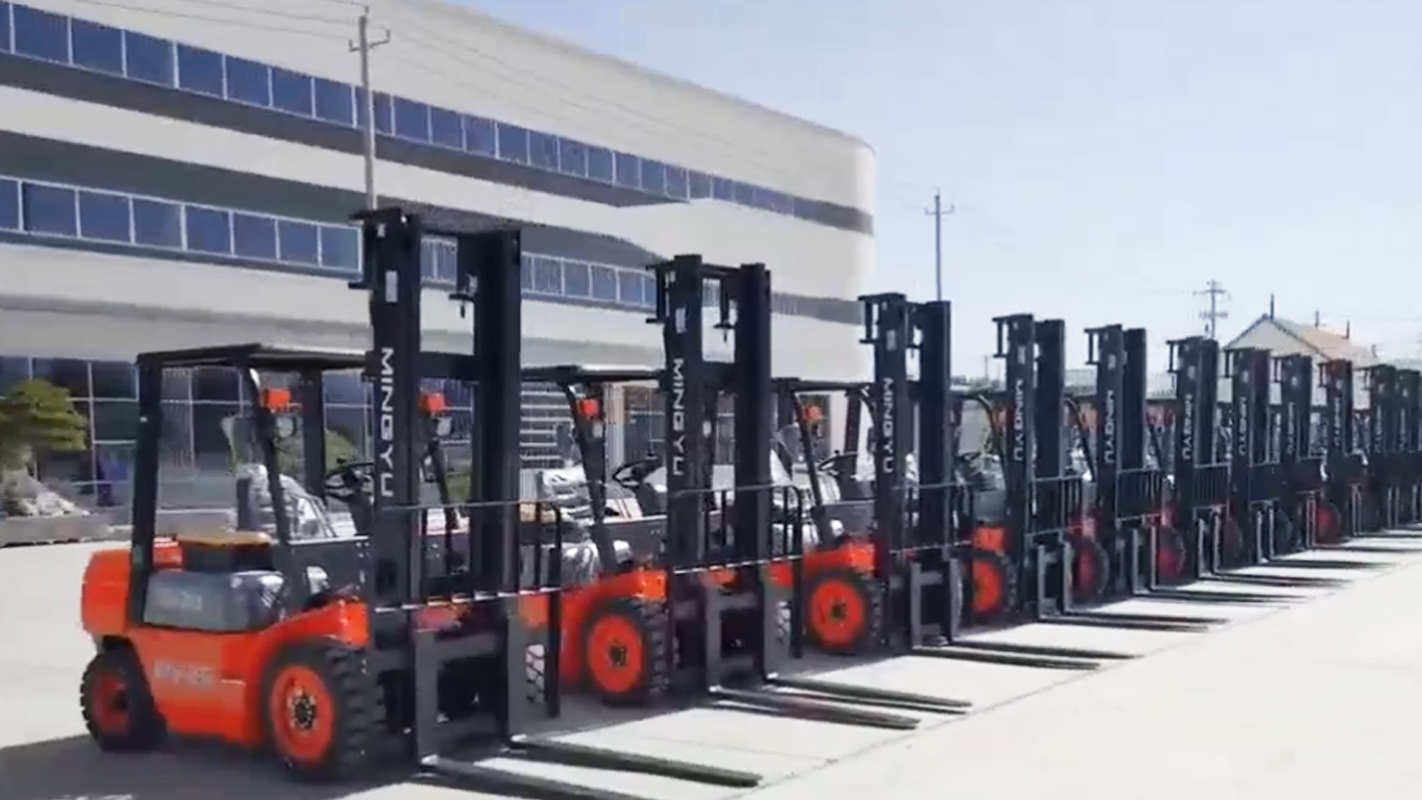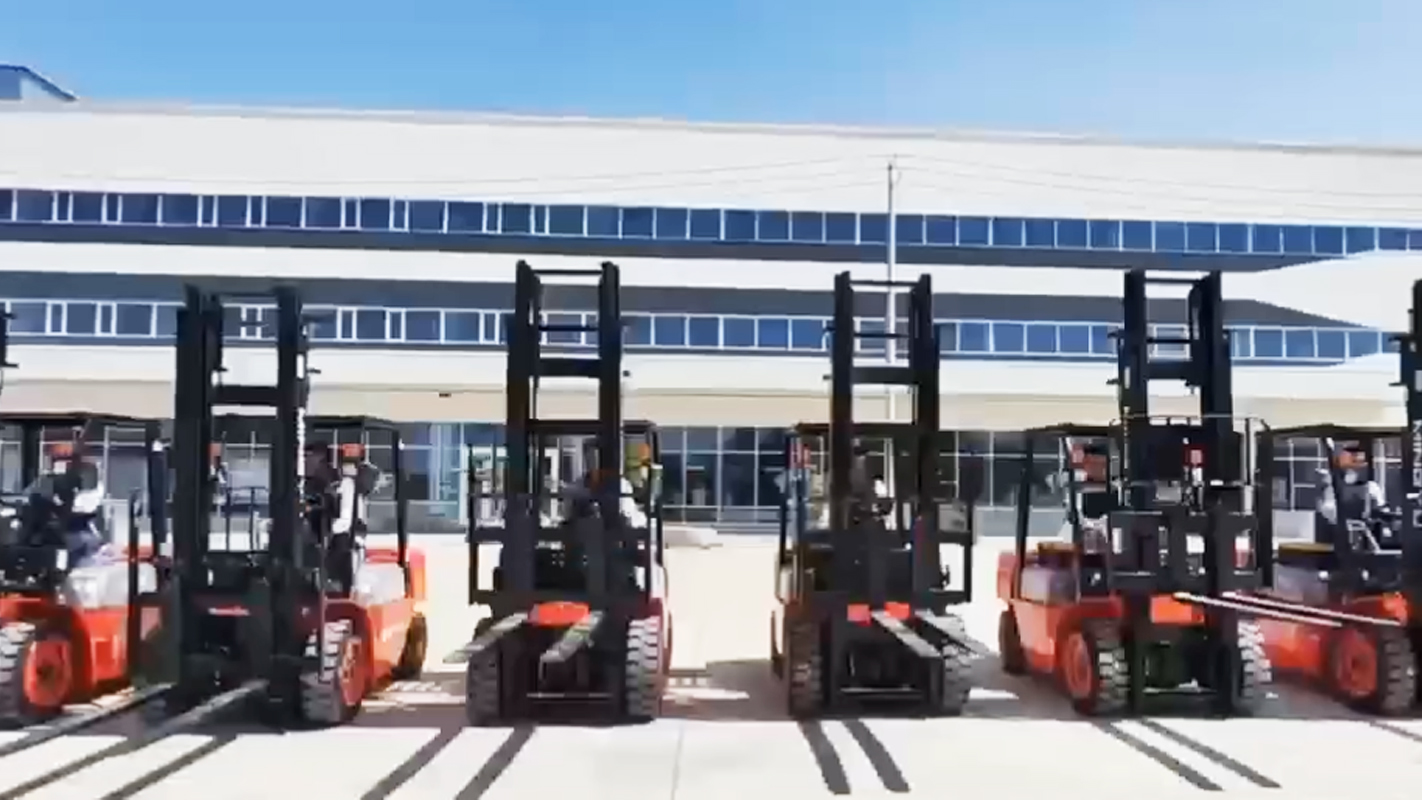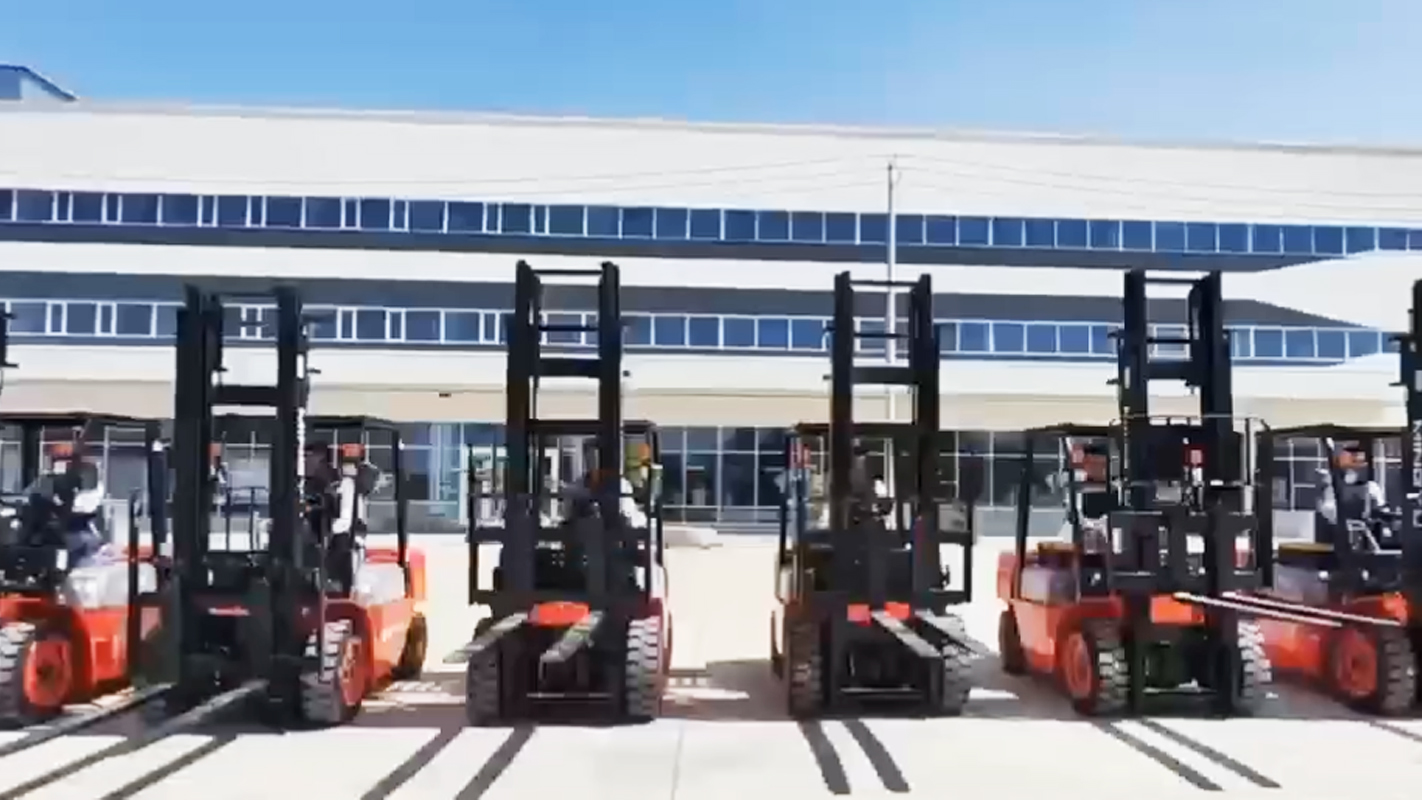I. Introduction
A. Briefly introduce forklifts as essential material handling equipment: "Forklifts are the backbone of modern material handling, facilitating the movement of goods across diverse industries. From bustling warehouses to expansive construction sites, these versatile machines are indispensable for efficiency and productivity."
B. Acknowledge the variety of fuel types and focus on gas and diesel: "While electric forklifts and other fuel alternatives exist, gas and diesel remain prevalent choices, each offering distinct advantages and disadvantages. Choosing between them requires careful consideration of operational needs and environmental factors."
C. State the article's purpose: to compare gas and diesel forklifts in terms of performance, cost, and applications: "This article aims to provide a comprehensive comparison of gas (LPG/gasoline) and diesel forklifts, examining their engine characteristics, fuel and operational costs, emissions, and suitability for various applications."
D. Briefly mention other fuel types, and why this article will only focus on gas, and diesel: "While electric, and other fuel sources are used, gas and diesel forklifts remain extremely common, and provide a large range of options for many companies, therefore this article will focus on them."
II. Engine and Performance Characteristics
A. Diesel Engines:
Torque and power output: "Diesel engines are renowned for their high torque output, especially at lower RPMs, making them ideal for heavy lifting and demanding applications."
Fuel efficiency under heavy loads: "Diesel engines generally offer better fuel efficiency under heavy loads and prolonged operation, leading to lower fuel consumption in demanding environments."
Durability and longevity: "Diesel engines are built for durability and longevity, often outlasting gas engines with proper maintenance."
Noise and vibration levels: "Diesel engines tend to produce higher noise and vibration levels compared to gas engines."
B. Gas (LPG/Gasoline) Engines:
Initial power delivery: "Gas engines offer quicker initial power delivery and faster acceleration, making them suitable for applications requiring rapid movement."
Refueling ease and speed: "LPG forklifts offer quick refueling through tank exchange, while gasoline forklifts can be refueled at standard gas stations."
Emissions and indoor/outdoor usage: "LPG produces lower emissions than diesel, making it suitable for some indoor applications with proper ventilation. Gasoline emissions are higher, and mostly for outdoor use."
Cold weather performance: "Gas engines generally offer better cold weather performance compared to diesel engines, which can experience starting difficulties in freezing temperatures."
C. Comparison of performance in different working conditions (indoor vs. outdoor, heavy vs. light loads): "Diesel forklifts excel in heavy-duty outdoor applications, while gas forklifts are more versatile for both indoor and outdoor use, especially in applications requiring quick maneuvering and moderate lifting."
D. Engine maintenance differences: "Diesel engines generally require more complex and costly maintenance, while gas engines have simpler maintenance requirements."
III. Fuel and Operational Costs
A. Diesel Fuel Costs:
Price fluctuations and regional differences: "Diesel fuel prices can fluctuate significantly based on market conditions and regional availability."
Fuel consumption rates: "Diesel forklifts typically consume less fuel per hour of operation under heavy loads compared to gas forklifts."
Long-term cost benefits for heavy use: "For high-utilization applications, the lower fuel consumption of diesel forklifts can lead to significant long-term cost savings."
B. Gas (LPG/Gasoline) Fuel Costs:
Price fluctuations and availability: "LPG and gasoline prices also fluctuate, and availability can vary depending on location."
Fuel consumption rates: "Gas forklifts generally consume more fuel per hour of operation compared to diesel forklifts, especially under heavy loads."
LPG tank exchange vs gasoline refueling: "LPG tank exchange offers quick refueling, while gasoline refueling requires downtime for filling."
C. Maintenance Costs:
Engine maintenance differences (diesel vs. gas): "Diesel engine maintenance typically involves more complex and costly procedures, including fuel system maintenance, particulate filter cleaning, and oil changes."
Component wear and tear: "Diesel engines, while durable, can experience higher component wear and tear due to higher operating pressures."
Service intervals: "Diesel forklifts often require more frequent service intervals compared to gas forklifts."
D. Overall cost analysis considering fuel, maintenance, and lifespan: "While diesel forklifts may have higher upfront and maintenance costs, their fuel efficiency can lead to lower long-term operating costs in high-utilization applications. Gas forklifts generally have lower upfront and maintenance costs but higher fuel consumption."
IV. Emissions and Environmental Considerations
A. Diesel Emissions:
NOx, particulate matter, and other pollutants: "Diesel engines produce higher levels of NOx, particulate matter, and other pollutants, posing environmental and health risks."
Regulations and emission control technologies: "Stringent emissions regulations have led to the development of advanced emission control technologies, such as particulate filters and selective catalytic reduction (SCR) systems."
Indoor vs. outdoor restrictions: "Diesel forklifts are generally restricted to outdoor use due to their high emissions."
B. Gas (LPG/Gasoline) Emissions:
CO, CO2, and other pollutants: "Gas engines produce lower levels of particulate matter but still emit CO, CO2, and other pollutants."
LPG vs. gasoline emissions: "LPG produces lower emissions than gasoline, making it a cleaner-burning alternative."
Indoor vs. outdoor use: "LPG forklifts can be used in some indoor applications with proper ventilation, while gasoline forklifts are primarily for outdoor use."
C. Environmental impact comparison: "LPG forklifts generally have a lower environmental impact compared to diesel and gasoline forklifts, but electric forklifts are the cleanest option."
D. Future emission regulations: "Emission regulations are becoming increasingly stringent, driving the development of cleaner-burning engines and alternative fuel technologies."
V. Applications and Suitability
A. Diesel Forklift Applications:
Heavy-duty outdoor applications (construction, ports, lumberyards): "Diesel forklifts are ideal for heavy-duty outdoor applications requiring high torque and lifting capacity."
Long-duration operation: "Diesel forklifts are suitable for long-duration operation due to their fuel efficiency and durability."
Rough terrain: "Diesel forklifts are well-suited for rough terrain due to their robust construction and powerful engines."
B. Gas (LPG/Gasoline) Forklift Applications:
Indoor and outdoor use (warehouses, distribution centers): "Gas forklifts are versatile for both indoor and outdoor use, particularly in warehouses and distribution centers."
Moderate to heavy lifting: "Gas forklifts can handle moderate to heavy lifting tasks with ease."
Applications needing quick refueling: "LPG forklifts offer quick refueling through tank exchange, minimizing downtime."
C. Industry-specific considerations: "Specific industries may have unique requirements that influence forklift selection. For example, food processing facilities may prefer LPG due to its cleaner emissions."
D. Resale value, and used market: "Diesel forklifts tend to hold their resale value better than gas forklifts, especially in heavy industry applications."
VI. Maintenance and Longevity
A. Diesel engine longevity and maintenance requirements: "Diesel engines are known for their longevity, but require regular and specialized maintenance to ensure optimal performance."
B. Gas engine maintenance and potential issues: "Gas engines have simpler maintenance requirements, but may require more frequent tune-ups and oil changes."
C. Availability of parts and service: "Parts and service for both diesel and gas forklifts are generally readily available, but diesel engine parts and service may be more expensive."
D. The importance of proper maintenance: "Proper maintenance is crucial for maximizing the lifespan and performance of both diesel and gas forklifts."
VII. Future Trends and Technology
A. Briefly discuss advancements in engine technology and alternative fuels: "Engine technology is continuously evolving, with advancements in fuel efficiency, emissions control, and alternative fuel options like hydrogen and biodiesel."
B. Mention the impact of emissions regulations on forklift design: "Increasingly stringent emissions regulations are driving the development of cleaner-burning engines and alternative fuel technologies, shaping the future of forklift design."
VIII. Conclusion
A. Summarize the key differences and applications: "Diesel forklifts excel in heavy-duty outdoor applications, while gas forklifts offer versatility for both indoor and outdoor use. The choice depends on specific operational needs, environmental considerations, and cost factors."
B. Provide guidance on choosing the right forklift based on specific needs: "Consider factors such as lifting capacity, operating environment, fuel costs, and maintenance requirements when choosing between diesel and gas forklifts."
C. Final thoughts on the evolution of forklift technology: "As technology advances and environmental regulations evolve, the forklift industry will continue to adapt, offering increasingly efficient and sustainable material handling solutions."
Post time:Apr.01.2025



